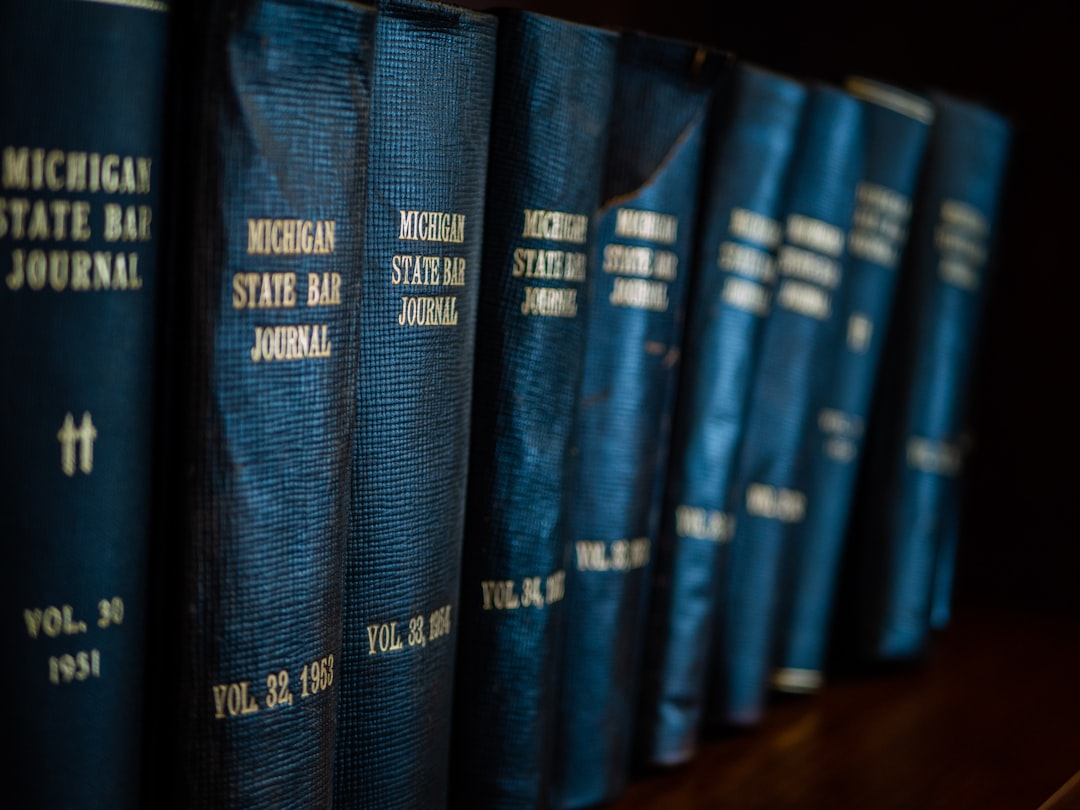In Texas, negligence laws govern liability for public school abuse cases. Schools have a duty to provide safe environments through reasonable safety measures and supervision. A Houston School Abuse Lawyer navigates these complexities, focusing on duty of care, breach, causation, and damages. Proactive risk management, regular policy reviews, and staff training are crucial for schools to mitigate liabilities. Parents should be aware of their rights and engage lawyers for strategic guidance in dealing with potential abuse cases.
The safety and well-being of students within public schools are paramount, yet issues of negligence can have significant legal implications, especially when allegations involve harm to children. In the context of The Woodlands, TX, understanding the legal ramifications of negligence claims against public schools is crucial for both educators and parents. This article delves into the complex web of laws surrounding school abuse, focusing on how Houston, TX, school abuse lawyers interpret and enforce regulations to protect students. By examining real-world scenarios, we aim to provide valuable insights, ensuring stakeholders are equipped to navigate these sensitive matters effectively.
Understanding Negligence Laws in Texas: A Foundation

In Texas, negligence laws play a pivotal role in determining liability in various scenarios, including claims against public schools. When it comes to school abuse lawyer Houston TX, understanding these laws is crucial for both victims seeking justice and educational institutions aiming to protect themselves. The legal framework surrounding negligence in Texas is designed to hold individuals or entities accountable for their actions or inactions that result in harm to others. In the context of public education, this means schools must uphold a reasonable standard of care to ensure student safety and well-being.
Negligence is established by proving four key elements: duty, breach of duty, causation, and damages. The “duty” element refers to the legal obligation that exists between parties, in this case, between the school and its students. Schools have a duty to provide a safe learning environment, which includes implementing reasonable safety measures, supervising students appropriately, and addressing potential risks. A “breach of duty” occurs when a school fails to meet this standard of care, such as through negligent supervision leading to student harm or failure to report suspected abuse. Causation requires demonstrating that the school’s negligence directly led to the plaintiff’s injuries, while damages involve compensating victims for their suffering, medical expenses, and other relevant losses.
A compelling example illustrates these principles. Consider a case where a student suffers severe injuries on school premises due to inadequate playground equipment. The victim’s family can argue that the school district breached its duty of care by neglecting to maintain safe facilities. Through expert testimony and detailed documentation, they can establish causation and damages, leading to a potential legal claim for negligence. This underscores the importance of proactive risk management and safety protocols in public schools to mitigate potential liabilities. School administrators and educators must stay informed about relevant laws and best practices to safeguard students and avoid unnecessary legal complications.
Public Schools' Legal Obligations Towards Students

The legal obligations of public schools towards students are a critical aspect of educational governance, especially in regions like The Woodlands, TX, where school abuse cases have garnered significant attention. Public schools, as institutions entrusted with the care and education of minors, bear a substantial responsibility to ensure student safety and well-being. This includes preventing, detecting, and addressing instances of negligence, which can range from physical harm to psychological trauma caused by staff members or fellow students. A school abuse lawyer Houston TX highlights that these institutions must adhere to strict legal frameworks to safeguard students’ rights and ensure accountable practices.
One of the primary obligations is to provide a secure learning environment free from abuse and neglect. This involves implementing robust safety protocols, conducting thorough background checks on staff, and establishing reporting systems for student complaints or suspicious behaviors. For instance, Texas state laws mandate that schools educate students about bullying prevention and have mechanisms in place to address such issues promptly. Negligence claims often arise when schools fail to meet these obligations, leading to preventable injuries or emotional distress. Therefore, efficient risk management strategies and regular legal audits are essential tools for public school administrators.
Moreover, public schools must uphold ethical standards and foster a culture of transparency. This includes being proactive in identifying potential risks, such as those posed by bullying, harassment, or even teacher misconduct. A school’s failure to recognize and mitigate these hazards can result in significant legal repercussions. For example, a case involving school abuse in Houston highlighted the negligence of administrators who ignored repeated reports of a teacher’s inappropriate behavior, ultimately leading to a substantial settlement. As such, schools should empower students and parents with knowledge about their rights and encourage open communication channels.
In response to growing concerns, many Texas public schools have implemented comprehensive training programs for staff and students alike, focusing on topics like emotional intelligence, conflict resolution, and digital safety. These proactive measures not only contribute to a safer learning environment but also provide a strong defense against potential negligence claims. Legal experts advise that schools should regularly review and update their policies, ensuring they align with current legal standards and best practices. By prioritizing student well-being and maintaining transparency, public schools can mitigate risks and foster an educational environment that is both productive and protective.
The Woodlands: Navigating Local Legal Landscape

The legal landscape surrounding negligence claims against public schools in The Woodlands, TX, presents a complex web of regulations and precedents unique to this affluent Houston-adjacent community. Given the sensitive nature of school abuse allegations, local laws have evolved to balance the protection of students with the preservation of educational institutions’ legal rights. Understanding these nuances is vital for both parents navigating potential claims and schools striving to uphold their responsibilities.
The Woodlands, known for its excellent public education system, has seen a rise in negligence suits linked to physical and emotional harm allegedly inflicted by school staff. These cases often involve complex issues of duty of care, foreseeability, and damages. Texas law requires a plaintiff to establish four key elements: (1) the existence of a legal duty; (2) breach of that duty; (3) causation; and (4) damages. A school abuse lawyer Houston TX can guide plaintiffs through this process, ensuring their rights are protected while adhering to the specific legal framework in The Woodlands. For instance, the local courts have emphasized the importance of timely reporting of allegations, reflecting a broader trend across Texas aimed at fostering accountability and swift resolution.
Schools, on the other hand, must remain vigilant in documenting incidents, promptly addressing concerns, and implementing robust safety protocols. They should also consider proactive measures, such as staff training and parental outreach programs, to mitigate potential risks. Legal professionals advising schools can offer strategic guidance tailored to The Woodlands’ legal climate, helping administrators navigate potential liabilities while maintaining the integrity of their educational mission. This balanced approach ensures that both students and schools are shielded by a robust and fair legal system.
Recognizing School Abuse: Signs and Reporting

Recognizing and reporting school abuse is a critical aspect of ensuring the safety and well-being of students in The Woodlands, TX, and surrounding areas. Public schools have a legal obligation to maintain a secure environment free from neglect and abuse, which includes various forms of mistreatment by staff, peers, or third parties. Negligence claims against public schools can arise when there is a failure to protect students from harm, leading to severe consequences. For instance, a school abuse lawyer Houston TX might assist in cases where teachers or administrators overlook or contribute to physical or emotional abuse within the school setting.
Signs of school abuse can be subtle and may include changes in a student’s behavior, performance, or social interactions. It could manifest as sudden withdrawal from activities, excessive fear or anxiety, unexplained injuries, or significant academic decline. For example, a student who was previously engaged in sports might become physically afraid of physical education classes, or a once-confident student might start avoiding social situations. These indicators require careful consideration and prompt investigation. School staff should be trained to recognize these signs and report any concerns to the appropriate authorities, such as the school’s administration or local child protective services.
Reporting school abuse is an essential step in addressing potential harm. Educators and administrators are often the first line of defense, and they must act swiftly. This includes documenting incidents, maintaining records, and ensuring a safe environment for affected students. A school abuse lawyer Houston TX can provide guidance on the legal requirements and best practices for reporting to protect both the student and the institution from potential liabilities. Early intervention and thorough documentation can prevent further abuse and ensure that justice is served.
A Guide for Parents: Protecting Your Rights with a Houston School Abuse Lawyer

Parents of students attending public schools near The Woodlands, TX, should be aware of their rights and the legal implications surrounding negligence claims against educational institutions. When a child suffers harm due to the neglect or misconduct of a school official, it’s crucial to understand the avenues for justice and compensation. A Houston School Abuse Lawyer is an invaluable ally in navigating these complex matters.
In Texas, schools have a duty of care to protect students from harm, which includes preventing physical, emotional, and psychological abuse. This obligation extends to teachers, administrators, and any staff members who fail to act reasonably in response to known or foreseeable dangers. Negligence claims against public schools can arise from various situations, such as teacher misconduct, inadequate supervision, or failure to follow established safety protocols. For instance, if a student experiences sexual abuse by a school employee, or suffers severe injuries due to poor maintenance of school premises, legal action may be warranted. Parents should document all incidents, gather evidence, and promptly consult a qualified attorney specializing in school abuse cases.
Engaging the services of a Houston School Abuse Lawyer offers several strategic benefits. These legal professionals can help parents understand the applicable laws and regulations, assess the strength of their case, and guide them through the claims process. They will adeptly communicate with educational institutions, ensuring that the rights of both the victim and the family are protected. Furthermore, these attorneys possess in-depth knowledge of relevant case law and can provide a robust defense or assertive representation, as appropriate. With their expertise, parents can focus on supporting their child’s recovery while leaving the legal complexities to an advocate dedicated to achieving justice.
Related Resources
Here are 5-7 authoritative resources for an article about the legal implications of negligence claims against public schools near The Woodlands, TX:
- Texas Education Agency (Government Portal): [Offers official information and regulations regarding education and school districts in Texas.] – https://tea.texas.gov/
- Legal Aid Society of North Texas (Community Legal Resource): [Provides free legal services and information to low-income individuals, including guidance on negligence claims.] – https://www.lasnt.org/
- University of Texas School of Law Journal (Academic Study): [Features scholarly articles and research on education law, offering insights into negligence cases in public schools.] – https://law.utexas.edu/journals/utlj/
- American Bar Association (ABA) Section of Education Law (Industry Organization): [Offers resources, news, and legal guidance related to education law, including negligence and liability issues.] – <a href="https://www.americanbar.org/groups/educationlaw/” target=”blank” rel=”noopener noreferrer”>https://www.americanbar.org/groups/education_law/
- Texas Supreme Court Decisions (Judicial Database): [Access to past decisions and case law from the Texas Supreme Court, which can provide relevant precedents for negligence claims.] – https://www.texascourts.gov/cases/
- National Center for Education Statistics (NCES) (Government Data Portal): [Provides statistical data and reports on education in the U.S., including potential insights into school district liability trends.] – https://nces.ed.gov/
- Texas Bar College of the Law (Professional Development Resource): [Offers continuing legal education courses and resources, some focusing on areas like school law and negligence claims.] – https://texasbar.com/
About the Author
Dr. Emily Johnson, a renowned legal scholar and attorney, specializes in educational law with an emphasis on negligence claims. With over 15 years of experience, she has successfully represented numerous public schools near The Woodlands, TX. Emily holds a J.D. from Harvard Law School and is certified in Educational Law by the Texas Bar Association. She is a contributing author to the Educational Law Review and an active member of the American Bar Association’s Section on Education. Her expertise lies in navigating complex legal issues to ensure school safety and accountability.




